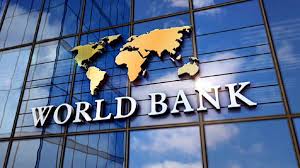
The World Bank has approved \$300 million in financing to help Nigeria boost resilience and improve access to essential services for Internally Displaced Persons (IDPs) and their host communities in the country’s northern region.
In a statement on Monday, World Bank Nigeria said the approval—granted on August 7, 2025—will support the *Solutions for the Internally Displaced and Host Communities Project*, which targets selected local government areas most affected by conflict-related displacement.
According to the Bank, the initiative aims to benefit as many as 7.4 million people, including approximately 1.3 million IDPs, through an integrated development approach aligned with Nigeria’s long-term growth agenda.
The statement read, “The World Bank has approved on August 7, $300m in financing for the Solutions for the Internally Displaced and Host Communities Project (SOLID).
“This initiative will enhance access to essential services and economic opportunities for Internally Displaced Persons and host communities in selected Local Government Areas in Northern Nigeria.
“By adopting an integrated development strategy, the SOLID Project seeks to help both IDPs and host communities move towards greater self-sufficiency and resilience, in line with Nigeria’s long-term development goals.”
The Bank stated that ongoing conflict and insecurity in the region have displaced over 3.5 million people, putting significant strain on local infrastructure and services in areas where IDPs have settled.
It added that the influx has heightened competition for scarce resources, limited livelihood opportunities, and increased vulnerability to natural disasters such as flooding, while local governments struggle to meet the needs of both residents and displaced populations.
The project will build on the Nigerian government’s existing initiatives, previous international interventions, and the earlier World Bank-funded Multi-Sectoral Crisis Recovery Project, which focused on short-term recovery.
It will prioritise developing and maintaining climate-resilient infrastructure, promoting social cohesion and community resilience through participatory planning and economic cooperatives, supporting livelihoods to enable economic activities for both IDPs and host communities, and strengthening institutions to respond to demographic pressures caused by displacement.








